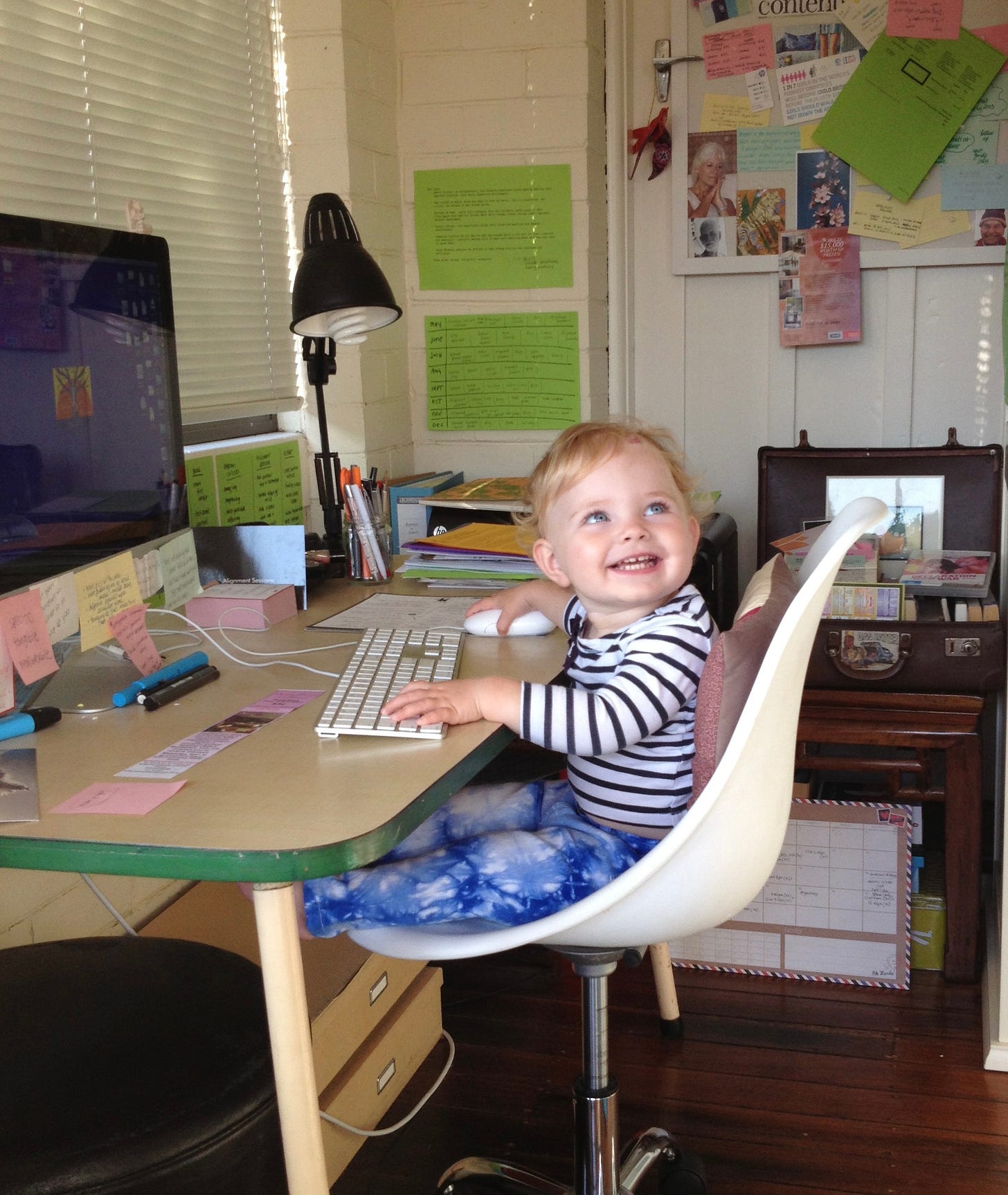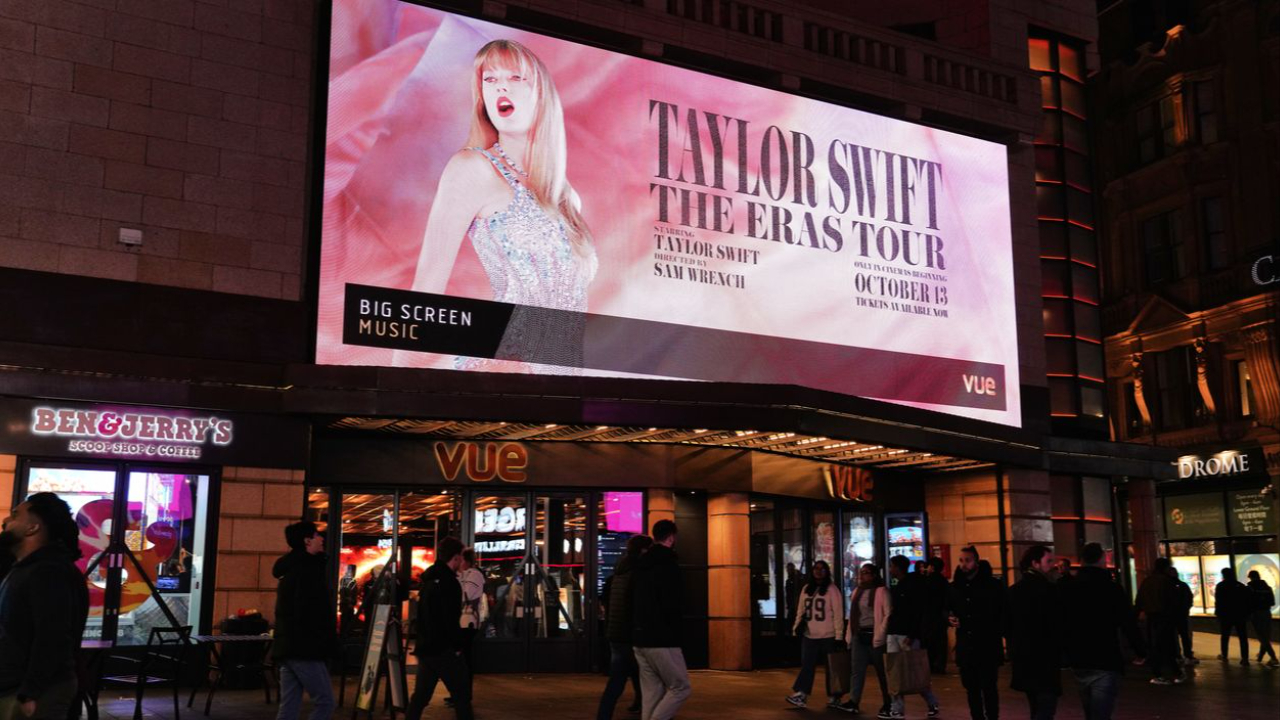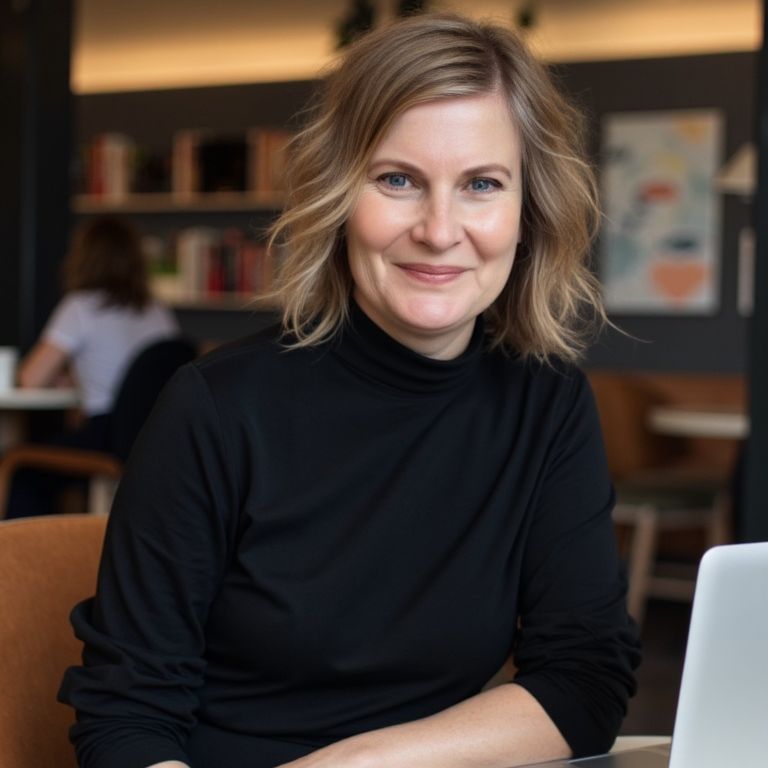Babies or business? Why not both?
Nov 28, 2024
Many years ago I did work experience at a large management consultancy firm. I was a school student and had become interested in management consultancy after watching Diane Keaton star in the 1987 movie Baby Boom.
Do you know it? (NB: There are spoilers ahead but given it’s over 30 years old, I figure that’s allowed.)
Diane plays J. C. Wiatt, a management consultant known as the ‘Tiger Lady’, in exactly the kind of firm I did work experience with. She lives in a world dominated by the idea that you can either be a ‘career woman’ or a mother, but not both. And if you’re going to be a career woman, you need to do everything you can to hide the one fatal flaw to your career progression; your womanhood.
J.C. - a name you might adopt if you’re actively trying to hide your gender - is working long hours and achieving success, right up until the moment her cousin dies and leaves 6-month-old baby Elizabeth in J.C.’s guardianship. J.C. and her shoulder pads are not happy. ‘I can’t have a baby because I have a 12.30 lunch meeting,’ she states.
In those first chaotic days, J.C. brings Elizabeth into the office, attempting to juggle Elizabeth’s needs with the demands of her job. Of course, that’s right when two partners decide to drop by to talk about her career progression. As J.C. encourages the men to sit down on the lounge, Elizabeth keeps swatting away the bottle J.C. is offering her. On the third or fourth time that J.C. leans down to pick it up, the two men share disapproving looks between them. The scene ends with J.C. declaring, ‘I’m hiring a nanny tonight, she’ll never be in the office again. Believe me, nothing is going to change. I’m totally on top of it.’
‘I can still count on you 7 days a week, 48 hours a day?’ asks her boss.
‘Of course,’ J.C. reassures him.
Unsurprisingly, J.C. soon finds she can’t actually be that person and quits her city life for a quieter existence in Vermont.
Adjustment ensues, a quiet veterinarian played by Sam Shepard comes into J.C.’s life and eventually, thanks to an excess of apples and nothing much to do, J.C. sets out to create a gourmet baby food company.
The culminating scenes involve J.C. being offered a multimillion-dollar deal to sell the company and resume her life in the city. Initially, she’s enormously excited, declaring to herself ‘I’m back’ in the bathroom mirror - a space she has retreated to, to consider the offer. But as she’s returning to the conference room to make the deal, she realises that she likes her country life, that she’s perfectly capable of building the business on her own, and that it doesn’t have to be all or nothing. She can carve out her own path to success.
Queue her happily ever after.
Whilst there are a great many critiques that could be made of the movie and the version of white feminism it portrays, I personally remember it as a movie that opened my eyes to a new way of thinking about my career. One that wasn’t so all or nothing. One that pointed at the possibility of having a fulfilling career whilst working from home with family around me.
I started thinking that perhaps I didn’t need to pitch these things against one another, but could instead, weave them together.
As I write this, that’s precisely what my world looks like. A world where family and business are not separated in such a definitive way. Where there’s greater fluidity between all parts of myself and the myriad roles I play.

This image is from the early days of my business. My daughter is much taller now and my desk is much cleaner.
When I was a teen, this was just a kernel of an idea. I still had my own J.C. journey to take which is how I ended up at Australia’s largest management consultancy firm, learning what I could about corporate life.
The firm teamed me with a woman who had just had twins. By ‘just had’ I mean they were maybe four months old. I followed her around, sitting in meetings I didn’t understand, noticing lots of spreadsheets on the table. I started to think that perhaps management consultancy wasn’t quite as fun as they’d made it out to be in Baby Boom.
I also realised that it was the woman herself that interested me. How was she juggling everything? How on earth was she managing with twins at home?
When we sat down for the mentoring part of the experience that’s what I asked her. I didn’t care so much about the business itself, I cared how she operated in the business.
So I asked, probably in that blunt way teenagers have, how it was possible to have such a full-on job and have babies too.
I’ll never forget the look she gave me; like I’d let down the team by asking such a question. Didn’t I know that I wasn’t supposed to mention the babies?
‘I have a nanny’ she curtly replied. ‘Shall we talk about the business?’
‘But, what time do you have to leave home?’ I persisted in complete naivety that I might be pushing All. The. Buttons.
‘They wake early and I feed them, as the nanny is arriving,’ she acknowledged, with a tone that conveyed, ‘If you ask me another question about this, I’m either going to burst into tears or kick you out of my office. Probably both.’
I really wanted to chat about women in the workplace. I wanted her to mentor me on how to have it all (a promise that had been sold to me by capitalism). I wanted to know how other women were managing. I wanted her advice because in a decade or two, I would be sitting in her seat.
I realise now that she was probably in no position to guide me. What was she going to say? ‘It’s all a sham. The thing about capitalism is it’s patriarchal. ‘Having it all’ is for men with wives and assistants who take care of the children and their schedule and literally everything else, so they can focus on work.’
Of course she wasn’t going to say that because she was at the front line of the fight for inclusion and she was barely surviving. If she had asked work to better accommodate her needs, people would have seen that as a personal failing on her part. Not a failing of the company. A failing of the woman. And by extension, of all women.
I didn’t yet know that blaming the mother was the defence du jour of the business world. That such a strategy meant that things didn’t have to change. That making it about her capacity - or not - to ‘do it all’ alleviated them of any further responsibility toward her.
I didn’t know that every woman was being forced to choose. Home or career.
I certainly didn’t know that even three decades later, a sportsman would be so confronted by the idea of women building successful careers that in a commencement speech, he would tell the women graduates, that they’d been fed diabolical lies about what would and wouldn’t fulfil them.

We stick with binary thinking until we see the trap of it. The lie and limitation of it.
Then we seek a new way.
Baby Boom gave me the first hint of a new way. The feminism it represents has - thankfully - moved on since 1987. But it did mark something significant.
Significant for mothers and working women. A hint that something might exist beyond the binary of either/or thinking. That something more could be created.
In the intervening decades, a great many women have stepped toward that invitation. Many models for working and mothering have been explored.
And the more we share those stories, the more doors we open for people. Doors that offer women happier and more fulfilled lives. Doors that create more functional and connected families. And ultimately, societies that don’t shrink, but rather expand to support the fullest expression of us all.
Reading Recommendations
If you'd like to dig further into the topic of motherhood and visibility, I have a reading list for you!
Bad Art Mother by Edwina Preston
Lessons in Chemistry by Bonnie Garmus
Bedtime Story by Chloe Hooper
A Ghost in the Throat by Doireann Ní Ghríofa
The Motherhood edited by Jamila Rizvi
The School for Good Mothers by Jessamine Chan
Mama Rising by Amy Taylor-Kabaz
Beautiful Chaos: On Motherhood, Finding Yourself and Overwhelming Love by Jessica Urlichs
The Mothers by Brit Bennett
The Wife Drought: Why Women Need Wives and Men Need Lives by Annabel Crabb
This is Not a Book About Benedict Cumberbatch by Tabitha Carvan
Mom Rage: The Everyday Crisis of Modern Motherhood by Minna Dubbin
To The Mothers of Sons (article) by Samantha Nolan-Smith
Healing the Mother Wound (article) by Samantha Nolan-Smith





